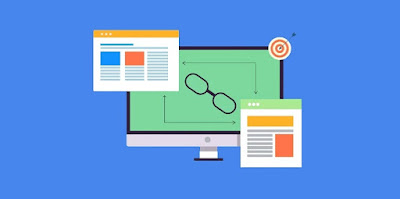Why and how to port an iOS App into an Android App?
Mobile phones are no more want in today's world, but it's a need today. The use of mobile phones has significantly increased, and so is demand. As of now, Android and iOS are the two prevalent & extensively used mobile operating systems. Interestingly, both these operating systems are a great competitor of each other and account higher than 99% of whole smartphone sales all over the globe. Now, when it comes to mobile applications, be it Android apps or iOS apps both platforms are obtaining immense popularity. Having competent knowledge of developing the app on both the platforms simultaneously is very significant acknowledging the fact that the competition level has grown much higher than before for a mobile app development company and, its focus is on native Android app development as it's much economical than cross-platform app development.
Nonetheless, proceeding towards which platform is to be
considered better, we can apparently say that in terms of profits iOS seems to
be the best platform as it generates enormous earnings, and at the same time
Android has the vaster market share (81% in regard to 18% of the iOS) so in
this prospect Android is a better platform.
Now the real challenge is what were the circumstances in
which the requirement to port an iOS app to an Android app befell. Let’s have a
comprehensive study on why the need arise.
Android apps offer
greater ability to customize
Android offers a far greater degree of customization than
that of iOS apps. Android permits users to use third-party browsers which are
not possible with iOS.
Android is more open
source than iOS
A factor that matter is that Android introduces it as a
partly open-source component whereas iOS is a closed-source component. This can
be a big reason to opt for the Android platform over iOS.
Easy file transfer in
Android than iOS
Transferring files with ease is an essential feature. People
prefer the Android platform because it facilitates the transfer of files easily
whereas iOS offers limited options.
More devices for
Android than iOS
As discussed earlier, Android holds a larger share in the market worldwide, so it's clearly conceded that a lot more devices use Android
over iOS.
More number of features
Android offers some specific features that you can use to
enhance customer engagement. You can provide users with various opportunities
that have been added by Google.
- The Physical Back Button
- Android Intents
- Widgets and Push Notifications
- Android Wear
UI design approaches
are different between Android and iOS
Android employs the ‘Material design’ approach, whereas iOS
uses the ‘Flat design’ approach which is minimalist, so it doesn't use 3D
effects of graphics. Moving forward, now let's discuss the relevant steps of
porting an iOS app into an Android app. Is it easy to port your iOS app into
Android? When it comes to technical terrain, it's easy, but takes
ample time to complete the process of conversion. However, a certain number of
tasks comprising app porting are to be carried out. Once you've completed with
these steps, your app is ready to go live in a few days. Moreover, both the
platforms have different languages, so all you need is a deft team of Swift
programmers and Java/Kotlin programmers.
Step 1: Perform
analysis and accordingly make a plan
The very first and foremost step is to perform a profound
analysis and make a plan accordingly in which you must focus on your current
iOS app, its features & design, workflow, characteristics, etc is to be
analyzed. You can also study the possible errors and problems that may arise in
the porting phase, and how to deal with those issues. Optimize the Android app
version as per your convenience, along with a deep compatibility check on
back-end individualities, tools, and frameworks to obtain desired outcomes.
Step 2: Valuation and execution
of the framed plan
All you need is to evaluate all the technical issues related
to codes, libraries, and third-party services, and choosing the right
technology stack to make app porting accurate is a crucial aspect to make an
application with exceptional functionalities. Porting time completely depends
upon the type of app, you want to port, porting an iOS app to Android will be
quite similar to developing a single android app so you may expect that your app will be ready in a week.
Step 3: Testing the app
and launching
Quality of the app must be given utmost preference. Like any
app development process, quality must be checked to make sure that the app is
successfully ported as per your plan. You can use real Android devices or
emulation tools to assure the quality of your app. Apart from this, you may
also go for different kinds of mobile app testing techniques, including load
testing, validation, user acceptance testing, and beta testing. Once, you get satisfactory results, your app is ready for submission to the Google Play
Store.
Wrapping up:
The above stated are the reasons why and how to port an iOS app
into an Android app. Now, the fact is that for a professional Android app development company, it's not a tough task to port the iOS-based application to
an Android app. By following these customized steps you can get your app ported
into Android. But all you need is the right team of Android & iOS app
developers apt with the understanding of platform adaption, business logic for
the app, along with programming and testing to acquire an appropriate solution
as per your requirement.




Comments
Post a Comment